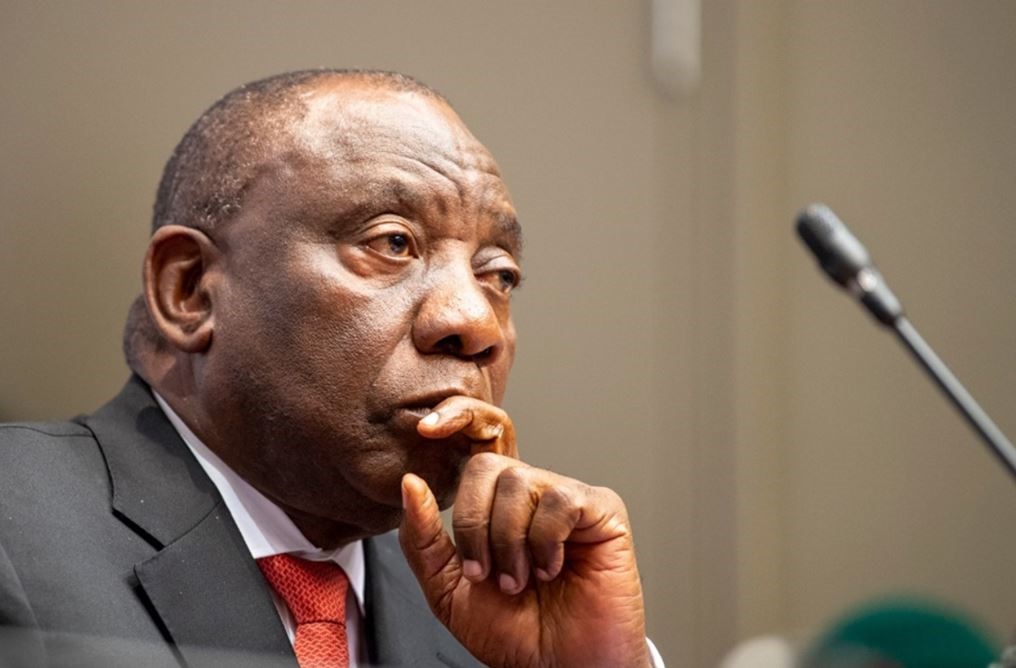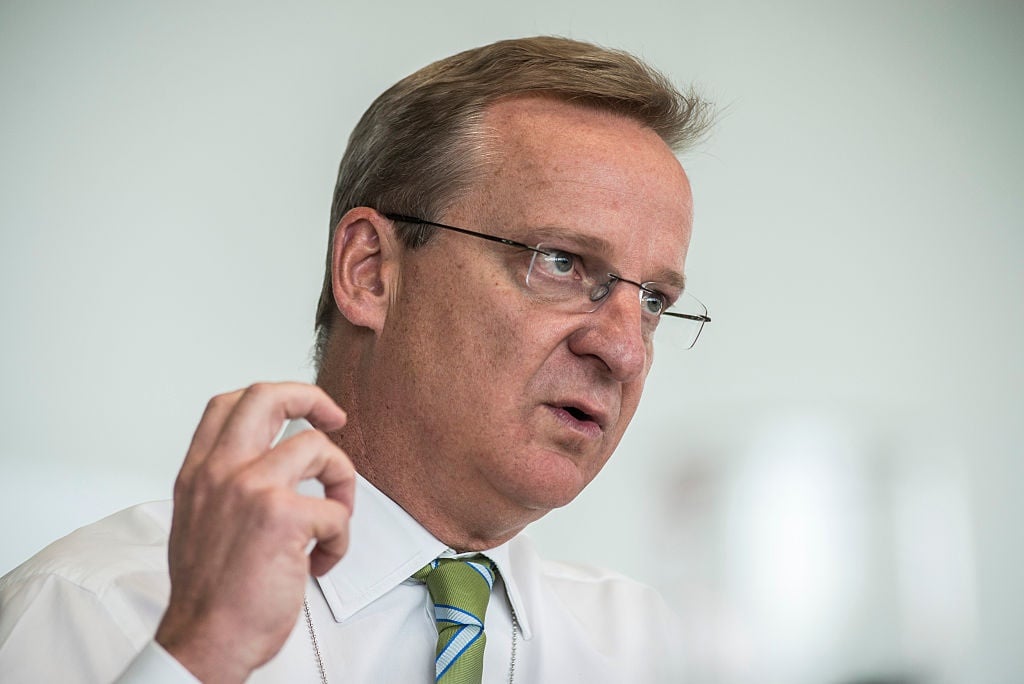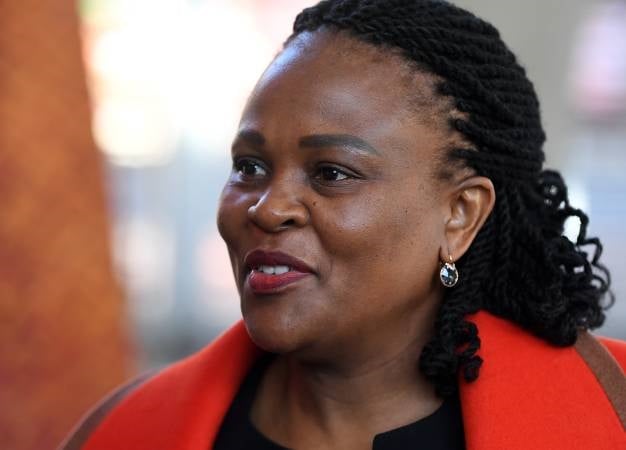
South Africa is in a dire state, says Mandy Wiener. President Cyril Ramaphosa and those in his inner circle can’t be oblivious to these red flags dominating the desolate landscape of the country at the moment. What we need now more than ever is strong leadership, beyond dreams of fast trains and hi-tech smart cities.
Faced with a profound sense of negativity and cynicism about the current state of the country, I recently wrote a column pointing out that there are visible green shoots emerging in a somewhat desolate landscape. Just over a week later, I feel it would be remiss of me not to write about the red flags waving wildly on that landscape, obscuring any directly visible sight of the green shoots.
As I've mentioned previously, it's not difficult to point out the negatives. The recently released jobs data and GDP numbers speak for themselves. The economy is contracting and people are out of work. You can just ask any of those multitudes of disillusioned expats rushing to get their visas and scramble their cash hand over fist out the country. They're sharing RW Johnson's columns ad nauseam, particularly his latest about how we're travelling towards a financial train crash.
The unemployment rate has increased to 29% leaving over 10m people without fixed jobs. In the first three months of the year, the economy contracted by 3.2%, the largest quarterly fall since 2009 following the global financial crisis. The rand has depreciated, hitting R15/$ and the debt to GDP ratio has ballooned. Analysts have attributed this to a swollen public sector wage bill, repeated bailouts for crippled state-owned entities and poor tax collection figures.
Pouring salt onto that wound, Eskom reported a record loss for the year of over R20bn and government announced a R59bn bailout for the power utility. Moody's responded with a scathing warning that the move is credit negative. Moody's remains the only major agency that has South Africa at investment grade with a stable outlook, just one notch above junk. However, the risk of that changing seems ominously closer.
Fitch Ratings has also warned that the latest bailout for Eskom could see the country miss the debt to GDP ratio targets set by Treasury. It expects that ratio to balloon to 68% in 2021/22 and the budget deficit to reach 6.3% by the close of 2019/20.
Over the past few days, criticism of President Cyril Ramaphosa's handling of the economy and the jobs crisis has gained traction with more and more business leaders and commentators adding their voices. The gloomy warning from many is that if the government doesn't impose austerity measures itself, it will be forced into doing so by the International Monetary Fund (IMF). An IMF bailout is the new buzz word.
Business Unity SA (Busa) president Sipho Pityana told Business Day in an interview this week that "runaway government debt now poses the risk of taking us all down". He was highly critical of Ramaphosa's management of the economy over the past 18 months and his failure to make any hard decisions required to stabilise public finances and create conditions that are more conducive to economic growth.
"The debt situation is now posing a systemic risk. Domestic financial services companies are being coerced by government to continue lending. We are at a point where state debt poses a risk of taking us all down. And the reason is that the rough decisions are not being made," Pityana told Business Day. He wants to see the hard calls being made about restructuring Eskom, chopping down the public sector wage bill, privatising some state companies and cutting back state spending.
At a results presentation this week, Nedbank CEO Mike Brown expressed his frustration at the lack of urgency to turnaround parastatals, warning that this must happen to "stem the economic and fiscal deterioration currently being experienced in the SA economy".
Remgro and Richemont chairman Johann Rupert has also expressed his disappointment at Ramaphosa's lack of leadership on the economy. He's quoted in Pieter du Toit's Stellenbosch Mafia as believing that the IMF bailout scenario is a real possibility.
Another red flag waving furiously is the fleeing private sector business leaders who have given up their positions at SOEs, further undermining Ramaphosa's new dawn rehabilitation strategy. This week Post Office CEO Mark Barnes announced he's quitting. He follows Vuyani Jarana who resigned from South African Airways and Phakamani Hadebe who abandoned Eskom. Invariably, the pressure of an interfering political principal is just too much.
Sceptics are also pointing to this week's tabling of the National Health Insurance (NHI) Bill in Parliament, firming up the inevitability of its introduction. The estimated cost of the comprehensive overhaul of the health system is being put at R256bn, which the government is going to have to find in an already stretched fiscus. The concept of the NHI strikes fear into the hearts of middle- and upper-class citizens who are on private medical aid and believe their health security could be under threat in the future.
Beyond the economy, Ramaphosa and his advisers find themselves consumed by legal challenges, primarily those involving the Public Protector Busisiwe Mkhwebane. That skirmish has occupied the narrative around the President for months now. In addition, Ramaphosa and his allies are also fighting a battle on another front – politically within their own party. Without the necessary political capital from within the ANC, Ramaphosa finds himself hamstrung to make any of the proper so-called "hard" decisions. Then, of course, there is labour looking over his shoulder too, watching his every move and the potential impact on jobs.
It's a dire time. Ramaphosa and those in his inner circle can't be oblivious to these red flags dominating the desolate landscape of the country at the moment. What we need now more than ever is strong leadership, beyond dreams of fast trains and hi-tech smart cities, to instil confidence and faith that we are in safe hands. Tough decisions have to be taken. Innovative blue-sky thinking must be implemented to overhaul SOEs and the economy. We simply can't bury our heads and ignore the red flags. The President must act to show us that there is space for those green shoots to flourish.




 Publications
Publications
 Partners
Partners

























